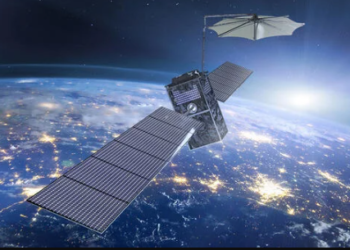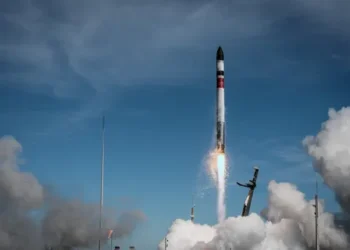Insurers sanguine on solar storms
The imminent launch of a new NASA satellite dedicated to observing the Sun has been accompanied by a host of news stories about the dangers solar activity could pose to communications networks in the near future.
The US$850m Solar Dynamics Observatory…
The imminent launch of a new NASA satellite dedicated to observing the Sun has been accompanied by a host of news stories about the dangers solar activity could pose to communications networks in the near future.
The US$850m Solar Dynamics Observatory will allow analysis of the Earth’s star in far greater detail than has previously been possible, and scientists anticipate that its data should make it easier to anticipate solar storms and flares ahead of time.
The SDO’s five-year mission is timed to coincide with a time period when it is believed the Sun will be much more active than it has been in recent years, as a new solar cycle appears to be beginning.
The solar cycle, which has an average length of 11 years, will enter a peak period in 2012 as shifts in the Sun’s magnetic fields create new sun spots and cause the star to periodically eject billions of tons of matter in to space at speeds of a million kilometres per hour.
Some scientists have warned that these solar flares, and the generally increased level of solar radiation emitted during a peak period, pose a threat to communications networks and orbiting satellites in particular.
This raises the question as to whether the solar cycle definitively raises in-orbit risk to the extent that it can affect the insurance market.
Wendy Lewis, director of corporate communications for Space Systems Loral, one of the largest satellite manufacturers in the world, told SatelliteFinance that the company’s technical staff do not consider the solar maximum to be a significant issue, as they compensate for the existence of solar radiation and unusual solar anomalies in every satellite they build.
It is not that the Sun does not effect satellites, merely that fail-safes are in place. SatelliteFinance spoke to one space insurance broker who said that there have been a number of instances when charged particles emanating from the Sun or from deep space have switched off equipment on orbiting spacecraft.
However, on board software usually switches the equipment back on after a short delay. Although solar flares can interfere with solar array circuits, satellite engineers will take the likelihood of increased incidences of flares into consideration when they design spacecraft.
For insurers, failure due to “radiation naturally occurring in the space environment” is claimable, but the short duration of most radiation-related glitches means that they are rarely claimable by a satellite operator.
In addition, it can also be very difficult to definitively pinpoint a solar flare as the cause of a solar array circuit failure.
There was no alteration to insurance rates when the solar cycle was at its previous maximum around a decade ago, and it is unlikely that it will affect the insurance market in the next few years either.
The broker speculated that were current market conditions different, insurers might take solar activity into greater consideration. He said: “In a ‘hard’ market, insurers may have more negotiating power to potentially push for larger power deductibles, perhaps on satellites which have historic problems with solar array failures, for example.
“Even this would require several failures with a proven link to increased solar activity before anything changed in the market. At the moment the market is very soft and so even if this issue did cross some of the insurers minds again, it would probably be drowned out by bigger market forces that would eventually set the rate instead.”
Although communications satellites appear mostly secure against the effects of the solar maximum, navigation constellations could be more vulnerable. This is because of the interference an increased level of solar radiation can cause in triangulating satellite navigation signals and earth receivers.
Solar flares can blind earth receivers, causing the navigation satellite’s signal, which is weak in comparison to those used by communications spacecraft, to be lost in the heightened background level of radiation.
In 2003, an unusually powerful solar storm scrambled the GPS network, causing a temporary disruption of airline navigation systems.
One spot of hope is that NASA currently predicts that is that the upcoming peak of the solar cycle will be relatively benign, causing fewer sunspots than usual.








